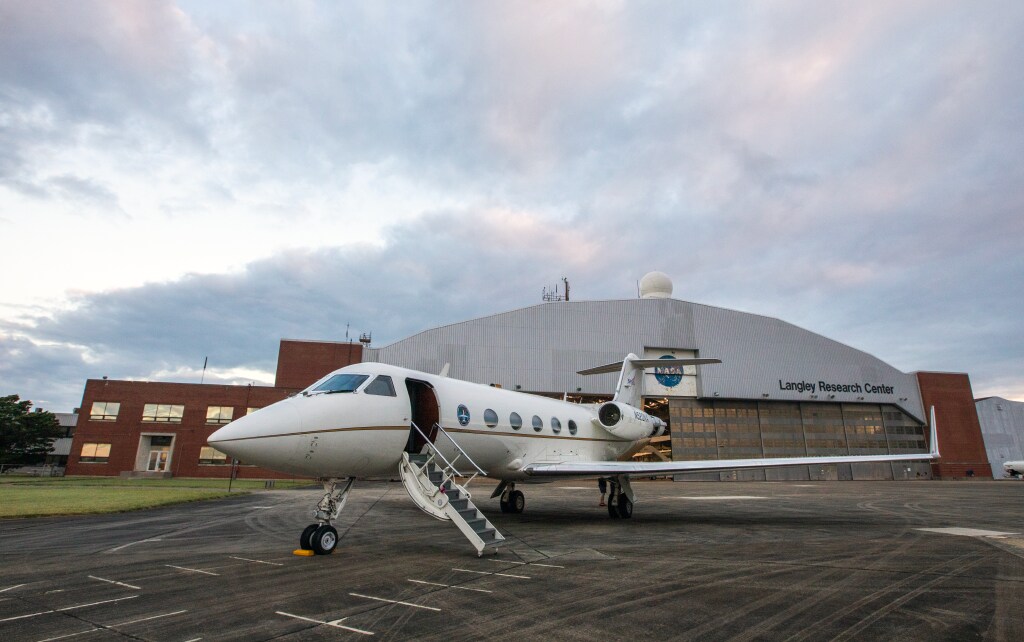Understanding the Role of Contrails in Climate Change: A Collaborative Effort by NASA and GE Aerospace
In an innovative collaboration, NASA and GE Aerospace have embarked on an ambitious series of flight tests in Virginia, aimed at deepening our understanding of contrails—those streaky clouds we often see trailing behind aircrafts at high altitudes. While these contrails may appear harmless, they could have a significant impact on climate change by trapping heat in the Earth’s atmosphere.
This initiative, known as the Contrail Optical Depth Experiment (CODEX), is crucial for the aviation industry and environmental scientists alike. The partnership is leveraging advanced technology to examine the formation and behavior of contrails, with the ultimate goal of mitigating their potential adverse effects on the planet’s climate.
Event Details and Objectives
The media event for this groundbreaking project is scheduled to take place on Monday, November 25, from 9 a.m. to 12 p.m. at NASA’s Langley Research Center in Hampton, Virginia. During the event, NASA Langley’s G-III aircraft, equipped with a mobile laboratory, will be showcased alongside GE Aerospace’s 747 Flying Test Bed (FTB). These sophisticated aircraft are at the forefront of the research, utilizing cutting-edge technology to gather critical data.
Participants at the event will have the opportunity to engage with NASA project researchers and GE Aerospace’s flight crew. They will discuss the specifics of CODEX, the innovative testing methods being employed, and the broader implications of understanding and managing contrails. This open dialogue aims to shed light on how these efforts can lead to more sustainable aviation practices.
Advanced Technology in Action: LiDAR
A key component of the CODEX initiative is the use of Light Detection and Ranging (LiDAR) technology. This sophisticated tool is being employed to capture three-dimensional images of contrails, offering unprecedented insights into their structure and evolution over time.
During the tests, NASA Langley’s G-III aircraft follows the GE Aerospace’s FTB, scanning the aircraft’s wake with LiDAR. This technology is instrumental in creating detailed models of contrails, allowing scientists to analyze how they form, persist, and potentially contribute to climate change. By understanding these patterns, researchers hope to devise strategies to reduce the environmental footprint of aviation.
Implications for the Aviation Industry
The results of the CODEX initiative could have far-reaching implications for the aviation industry. By gaining a clearer understanding of contrail formation and its impact on the climate, airlines and aircraft manufacturers can work towards developing more environmentally friendly technologies and practices.
Potential outcomes include designing aircraft engines that produce fewer contrails or altering flight paths to minimize their formation. Moreover, the insights gained from this research could inform regulatory policies aimed at reducing the aviation sector’s contribution to global warming.
The Broader Context: Aviation and Climate Change
The aviation industry is a significant contributor to greenhouse gas emissions, and its impact on climate change is a growing concern. Contrails, which are composed of ice crystals, can contribute to atmospheric warming by trapping heat. Although they dissipate relatively quickly, their cumulative effect, when multiplied by thousands of flights every day, can be substantial.
By addressing the issue of contrails, the CODEX project represents a proactive step towards mitigating the environmental impact of air travel. It aligns with broader efforts to develop sustainable aviation technologies and practices, thereby contributing to global climate change mitigation goals.
Public Engagement and Future Prospects
Engaging with the public and the media is a vital aspect of the CODEX initiative. By raising awareness about the impact of contrails and the steps being taken to address the issue, NASA and GE Aerospace hope to foster a more informed dialogue around sustainable aviation.
Looking ahead, the success of the CODEX project could pave the way for further research collaborations and technological innovations. As the world grapples with the challenges of climate change, initiatives like CODEX underscore the importance of science and technology in driving positive environmental change.
Conclusion: A Step Towards Sustainable Aviation
The collaborative efforts of NASA and GE Aerospace in the CODEX initiative highlight the critical role of research and innovation in tackling climate change. By enhancing our understanding of contrails and their impact on the environment, this project represents a significant step towards achieving a more sustainable aviation industry.
As the world continues to seek solutions to environmental challenges, initiatives like CODEX serve as a reminder of the power of collaboration and the potential of technology to drive meaningful change. By investing in research and fostering cross-industry partnerships, we can work towards a future where aviation is not just a means of connecting the world, but also a model of environmental responsibility.
For further details on the CODEX project and related initiatives, you can visit NASA’s dedicated page on green aeronautics [here](https://www.nasa.gov/aeronautics/green-aero-tech).
For more Information, Refer to this article.

































